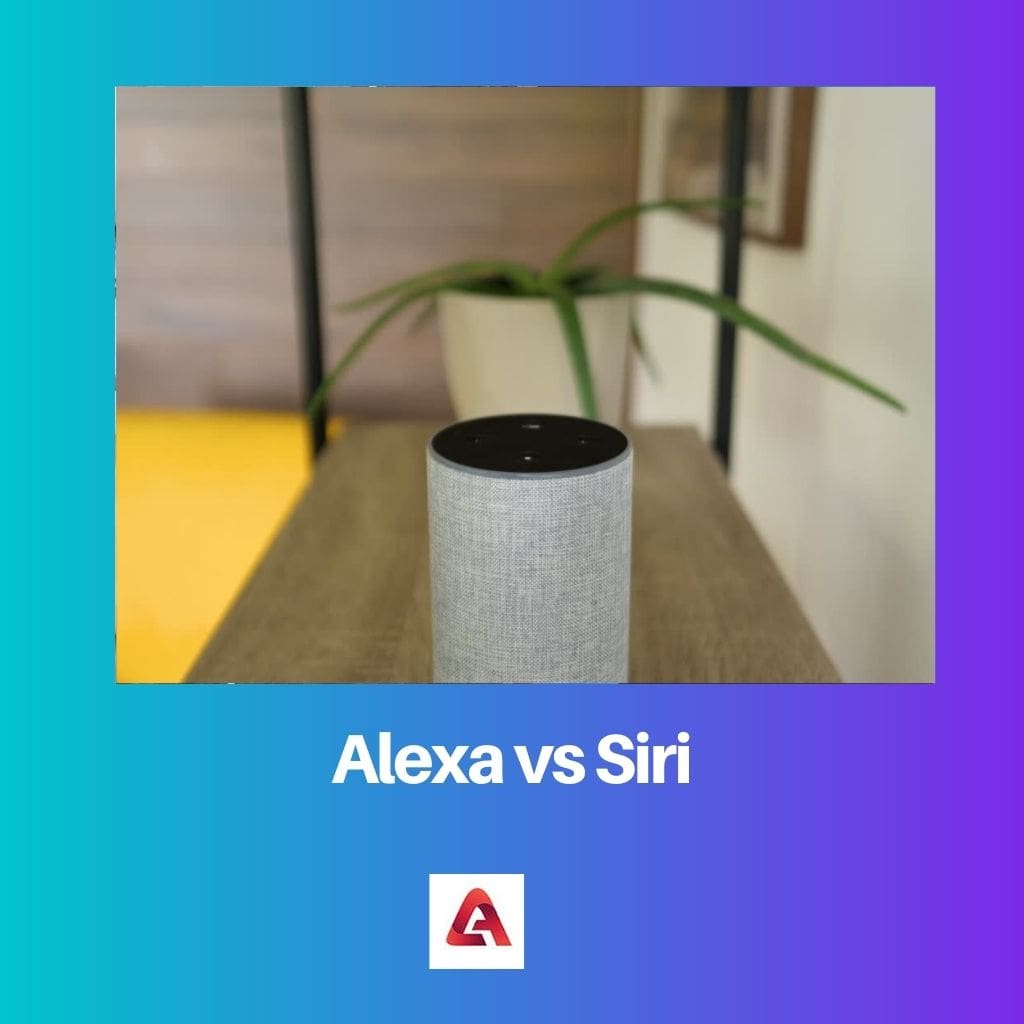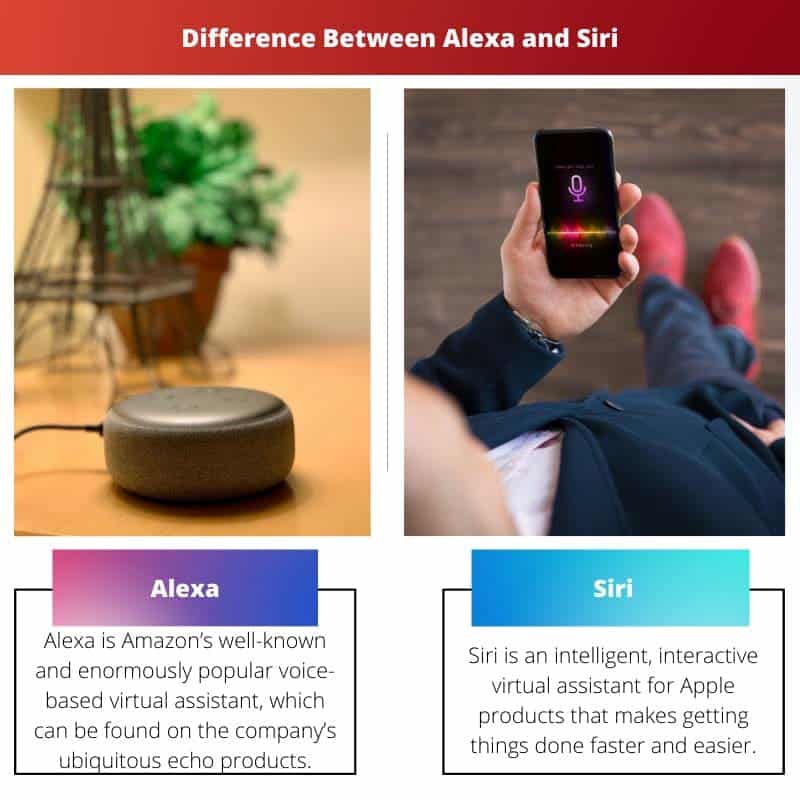Technologies like Siri, Alexa and Google Assistant that are ubiquitous in every household today are excellent examples of conversational AI.
These conversational AI bots are more advanced than regular chatbots that are programmed with answers to certain questions.
Key Takeaways
- Alexa is a virtual assistant developed by Amazon, while Siri is a virtual assistant created by Apple.
- Alexa primarily runs on Amazon Echo devices and integrates with Amazon services, whereas Siri operates on Apple devices and integrates with the Apple ecosystem.
- Both virtual assistants support voice commands and AI-powered assistance, but their capabilities and compatibility with third-party services may differ.
Alexa vs Siri
Alexa is developed by Amazon, while Apple develops Siri. Alexa is primarily designed to work with Amazon’s Echo smart speaker devices, while Siri is integrated into Apple’s devices. Alexa is known for its ability to integrate with a wide range of third-party apps and smart home devices, unlike Siri.

Alexa is Amazon’s well-known and enormously popular voice-based virtual assistant, which can be found on the company’s ubiquitous echo products.
Alexa is a new kind of voice system that can use current conversational artificial intelligence, implying that Alexa is supposed to be interacted with rather than just be commanded.
Alexa is the brains behind the Amazon Echo series of gadgets. Simply say “Alexa” to wake it up, and then ask a question or issue orders.
Although Alexa appears to be a single entity, she’s actually a group of devices that work together to provide a complete and seamless experience.
Siri is an intelligent, interactive virtual assistant for Apple products that makes getting things done faster and easier. Siri is a voice-recognising personal digital assistant which first appeared on the iPhone in late 2011.
Siri began as an independent iOS smartphone app that Apple eventually purchased. Siri’s powers were initially confined to basic operations like finding contacts, chatting, retrieving weather updates, and a few simple queries.
Comparison Table
| Parameters of Comparison | Alexa | Siri |
|---|---|---|
| Owner | Amazon | Apple Inc. |
| Year Created | 2014 | 2011 |
| Availability | Presence is not as widespread | Widely available, in more than 20 languages |
| Colour | Seven colour options are available | White or black options only |
| Connectivity | With numerous devices | Only with Apple systems |
What is Alexa?
It is a virtual digital assistant machine primarily based on Ivona, a Polish speech synthesiser that Amazon bought in 2013.
It began to begin with implement within-side the Amazon Echo clever speaker, in addition to Amazon’s other devices.
Voice interaction, track playback, to-do lists, alarms, streaming podcasts, audiobooks, climate, traffic, sports, and different real-time information, consisting of news, are all possible.
Alexa also can act as a domestic automation machine, controlling a whole lot of clever gadgets.
Installing “skills” (greater capability produced via way of means of third-celebration companies, in different settings extra commonly known as applications) consisting of climate programmes and audio capabilities permits customers to boom Alexa’s capabilities.
These obligations are executed through the use of pre-recorded computer spee.ch. Alexa comes preloaded with a variety of useful features, including the ability to use an alarm, get weather updates, and much more.
To wake an Alexa-enabled system of an upcoming usage or command, users utter a preset “wake word” (the default is just “Alexa”). Alexa hears and processes the speech and executes the appropriate function to respond to a question or command.

What is Siri?
As previously stated, Siri is an integrated voice-control public assistance available to Apple users. The idea is that you speak to her, and she will respond to assist you in getting things done, whether it’s making a dinner reservation or sending a message.
Siri is designed to give you a consistent way of communicating with your other Apple systems or platforms, be it HomePod, or Mac, by allowing you to talk to her and her responding to you to find or do what you need.
You can ask her questions, request that she expose something, or give her instructions to carry out on your behalf without touching her.
Siri has access to all of your Apple device’s high-end software – Mail, Contacts, Messages, Maps, Safari, and so on – and may call on any of them to provide statistics or search their databases whenever she wants.

Main Differences Between Alexa and Siri
- Amazon owns Alexa, whereas Apple owns Siri.Inc.
- Alexa can be connected to multiple devices in a house, whereas Siri can only be connected to Apple devices. Siri is very useful in a house where the majority of the devices used are from the Apple brand.
- Another major difference for music enthusiasts is that Siri scores over Alexa and music services. Siri has much more variety of music on its platform than Alexa.
- Alexa has a much more powerful shopping scenario due to the backend support of Amazon, whereas Siri is not much compared to Alexa.
- Alexa can provide more personalised services as it maintains different users’ voice profiles while maintaining confidentiality. Whereas on Siri, users have to record their voices.





